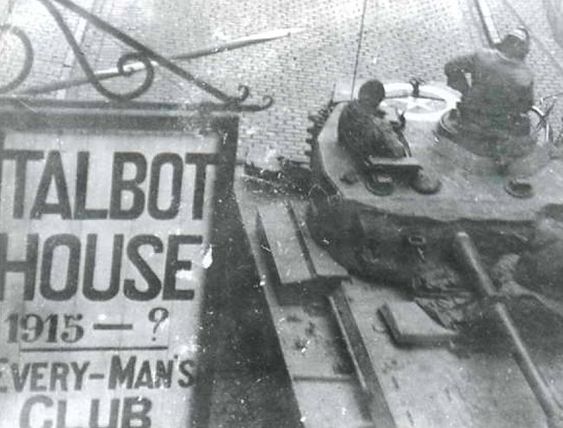Flanders and the rest of Belgium will this weekend mark the 80th anniversary of its liberation in the Second World War with several events, including in Ypres, the town forever associated with conflict.
Ieper, also known as Ypres in West Flanders, is an area that saw intense fighting throughout the First World War.
Known to the British troops based there during the war as ‘Wipers’, the town is intrinsically linked with the war.
However, celebrations to mark this week’s WW2 anniversary will also take place in and around the Flemish town.
This includes the local British Soldiers’ Club which celebrates the landmark with a garden party, drama tour and music from British Grenadier Guards band.
Poperinge was liberated by the Polish General Maczek and, later on September 5, the town will welcome his granddaughter who will open an exhibition about the liberation of Poperinge in the nearby hamlet ‘Aan de Schreve’.
On Friday 6 September, 80 years after Belgium’s liberation, the band of the British Grenadier Guards will perform in the garden of Talbot House at 3pm.
The British War Graves Commission CWGC will also be present with their “Legacy of Liberation Campaign.”
It was through Talbot House, a British soldier’s club in Poperinge during the First World War, that British gardeners and their families were able to flee the German invasion.
Their “Torch of Commemoration” will be on display during the garden party. In the evening, there will be another performance with 1940’s music by The Jacquelines.
On Saturday, 7 September, there will be a grand public event where actors will dress as their predecessors and bring their stories back to life during a theatrical walk through Talbot House.
A supporting cast of living historians and performances aims to ensure plenty of fun in the garden.
Simon Louagie, manager of Talbot House, said, “The Liberation Festival is guaranteed to be a memorable party that touches the heart of all who join us.”
Among the stories being recounted are those from Frank Gillard, a former BBC journalist and Talbot House warden. He was the penultimate British volunteer until April 1939 who returned on Liberation Day.
Frank recalls the day, saying, ““We pulled up outside the front door of the Old House. A great Union Jack was hanging from an upper window. The place badly needed a coat of paint, but otherwise, externally, it was in excellent condition.
“Not even a pane of glass was broken. The big front door swung open, and there, in the entrance hall, stood a reception committee – armed members of the Belgian Resistance Movement who were standing guard over this piece of British property.”
“Finally the big moment had arrived. A little after noon on Wednesday 6 September 1944, Talbotousians heard the roar of engines. Belgian flags waved in the streets and the first Polish tank stopped at the door. Talbot House had been liberated.”
Simon added, “80 years later, we bring the stories of Talbot House during World War II to life. There may not be a tank involved, but the band of the Grenadier Guards, along with our Talbotousians, will certainly celebrate a memorable ‘Liberation Festival’.”
He further explained: “When the British Soldiers’ Club was exposed in 1941, volunteers managed to drag away and hide all the original artefacts. Thousands of books, dozens of paintings, a piano and even the entire chapel disappeared in a few hours when night fell. Even the Gestapo failed to touch the soul of the House.
“Thanks to our volunteers’ eternal optimism and sense of duty, after the liberation the House could welcome back British servicemen almost immediately.
“Stories like this sound almost too good to be true. But they ring true and will be beautifully illustrated at our celebration with photos, film and interviews.”
“Our Liberation Festival, will further highlight and thank our predecessors at Talbot House. Without them, the club would have been long gone. It is wonderful to see their successors taking up the torch to this day.”







